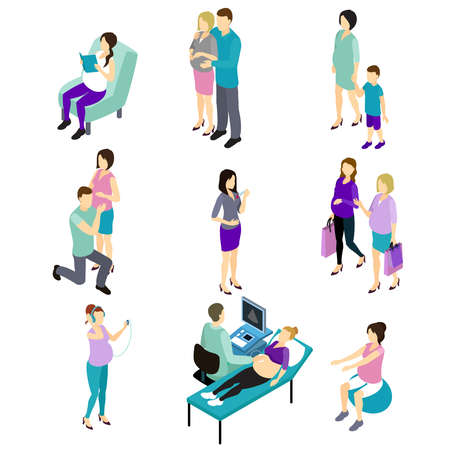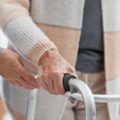Introduction to Cancer Rehabilitation Outcomes
Cancer rehabilitation is an essential component of comprehensive cancer care, aiming to support individuals in maximising their physical, psychological, and social well-being throughout and beyond their cancer journey. In the UK, the significance of measuring outcomes in cancer rehabilitation has become increasingly recognised, as it allows healthcare professionals to assess the effectiveness of interventions, tailor support to each persons unique needs, and demonstrate value within the NHS framework. By systematically capturing and analysing outcomes, clinicians and service providers can ensure that care is truly person-centred, responsive to change, and aligned with national health priorities. This approach not only helps improve the quality of life for people living with and beyond cancer but also provides crucial data for service development, policy planning, and resource allocation across the country.
2. Key Metrics Used in UK Cancer Rehabilitation
Cancer rehabilitation services in the UK are committed to measuring outcomes with precision and consistency, ensuring that patient care is both effective and responsive to individual needs. Across NHS Trusts and independent providers, a suite of standardised metrics and validated assessment tools are implemented as part of routine practice. These measures enable multidisciplinary teams to track progress, evaluate intervention efficacy, and support continuous service improvement.
Primary Outcome Metrics
The following table summarises key metrics commonly adopted across UK cancer rehabilitation services:
| Metric/Tool | Description | Purpose |
|---|---|---|
| Patient-Reported Outcome Measures (PROMs) | Self-reported questionnaires such as the EORTC QLQ-C30 or the Macmillan PROM tool | To capture patients’ perspectives on symptoms, daily functioning, and overall quality of life |
| Functional Assessment Tools | Objective measures like the Functional Assessment of Cancer Therapy (FACT) or the 6-Minute Walk Test | To evaluate physical capacity, endurance, and independence in activities of daily living (ADLs) |
| Goal Attainment Scaling (GAS) | A collaborative goal-setting method between patients and clinicians | To assess progress towards personalised rehabilitation goals |
| Clinical Performance Metrics | Measures such as the Karnofsky Performance Status or ECOG Performance Status Scale | To gauge overall performance status and eligibility for ongoing interventions |
| PROMIS® Instruments | A set of standardised tools covering pain, fatigue, emotional well-being, and social roles | To provide a holistic overview of patient-reported health domains relevant to cancer recovery |
NHS Reporting Frameworks and Local Adaptations
The NHS England’s National Cancer Patient Experience Survey also serves as a valuable metric for capturing broader service user feedback. Additionally, some regions have introduced digital platforms that allow real-time monitoring of outcomes, ensuring timely adjustments to care plans. Local adaptations may incorporate bespoke tools reflecting specific population needs, cultural considerations, or emerging clinical guidelines.
Ensuring Cultural Relevance in Metric Selection
An essential aspect of the UK approach is the careful selection of outcome measures that are culturally appropriate and validated for use within British populations. This includes using language-sensitive instruments and considering health literacy levels to ensure equity in assessment processes.

3. Mandatory Reporting and National Guidelines
Outcome measurement in cancer rehabilitation within the UK is shaped by a framework of national requirements designed to ensure consistency, quality, and meaningful improvements in patient care. The National Health Service (NHS) has established clear reporting standards that require healthcare providers to systematically collect, analyse, and report data relating to rehabilitation outcomes. This mandatory reporting enables benchmarking across services and helps identify areas for service development.
The National Institute for Health and Care Excellence (NICE) offers additional guidance, providing evidence-based recommendations on outcome assessment in cancer rehabilitation. These guidelines encourage the use of validated tools to assess domains such as physical function, psychological wellbeing, and quality of life. By adhering to these recommendations, services can demonstrate that their interventions are making a measurable difference to patients’ lives.
For many professionals working in cancer rehabilitation, understanding and implementing these national requirements can feel daunting. However, following NHS reporting standards and NICE guidelines not only supports compliance but also fosters a culture of accountability and continual improvement. Ultimately, this ensures that individuals affected by cancer receive the highest standard of rehabilitative support throughout their journey.
4. Patient-Centred Approaches to Outcome Measurement
Within the UK, cancer rehabilitation is increasingly adopting patient-centred approaches to evaluate outcomes. Rather than relying solely on clinical or biomedical indicators, there is a growing emphasis on understanding the lived experiences of people affected by cancer. This shift is largely facilitated through the use of Patient-Reported Outcome Measures (PROMs) and Patient-Reported Experience Measures (PREMs), which place patients’ voices at the heart of service evaluation and improvement.
The Role of PROMs and PREMs in UK Cancer Rehabilitation
PROMs are tools that allow individuals to report directly on their health status, functional ability, and quality of life, without interpretation by healthcare professionals or anyone else. In contrast, PREMs focus on patients’ perceptions of their care experience, including communication, accessibility, and emotional support. Both measures are routinely integrated into cancer rehabilitation pathways throughout the NHS and other UK healthcare settings to ensure that services reflect what matters most to patients.
Commonly Used PROMs and PREMs
| Measure | Description | Application in Cancer Rehabilitation |
|---|---|---|
| EORTC QLQ-C30 | A widely used questionnaire assessing quality of life in cancer patients. | Evaluates physical, emotional, and social functioning pre- and post-rehabilitation. |
| EQ-5D | A generic measure of health status applicable to a wide range of health conditions. | Facilitates comparison across different patient groups; used for economic evaluations. |
| PROMIS® Tools | Patient-Reported Outcomes Measurement Information System; covers multiple domains. | Assesses fatigue, pain interference, anxiety, and other symptoms relevant to cancer recovery. |
| NHS Friends and Family Test (FFT) | A quick feedback tool asking whether patients would recommend the service to others. | Provides insight into overall patient experience with rehabilitation services. |
| Cancer Rehabilitation PREMs | Bespoke surveys developed within NHS Trusts or charities such as Macmillan Cancer Support. | Captures specific feedback about the rehabilitation process and multidisciplinary care teams. |
Integration into Practice
PROMs and PREMs are embedded at various stages along the patient pathway. For example, baseline assessments are often completed upon entry into a rehabilitation programme, with follow-ups scheduled after key interventions or at discharge. The data collected supports individualised care planning, helps clinicians identify unmet needs, and informs service development at both local and national levels. In some areas, digital solutions have been adopted to make the completion of these measures more accessible and timely for patients across England, Scotland, Wales, and Northern Ireland.
The Value of Listening to Patients’ Voices
This patient-centred approach not only honours each person’s unique journey but also ensures that rehabilitation services remain responsive to evolving needs. By integrating PROMs and PREMs into outcome measurement frameworks, UK cancer rehabilitation services foster a culture of partnership—one where patients feel seen, heard, and truly supported throughout their recovery.
5. Data Collection and Analysis Methods
Collecting, managing, and interpreting outcome data is at the heart of effective cancer rehabilitation in the UK. The practicalities of this process require a thoughtful approach that respects both the needs of patients and the demands of service evaluation.
Gathering Outcome Data
In UK cancer rehab services, outcome data is gathered through a blend of patient-reported outcome measures (PROMs), clinician assessments, and occasionally digital health monitoring tools. Patients may complete validated questionnaires such as the EQ-5D or EORTC QLQ-C30, often during routine appointments or via secure online platforms. These tools capture changes in physical function, emotional wellbeing, and overall quality of life, providing a holistic picture of each person’s journey.
Managing Collected Information
Ensuring data security and confidentiality is paramount. NHS Trusts and other providers typically use encrypted electronic health records (EHRs) to store outcome data, with strict access controls in place. Regular staff training helps uphold GDPR standards and maintain patient trust. For multi-centre projects, standardised protocols are adopted to ensure consistency across sites and facilitate meaningful comparison.
Interpreting Results for Improvement
The next step involves analysing the collected data to identify trends and inform service development. Multidisciplinary teams—including physiotherapists, occupational therapists, nurses, and psychologists—review outcome reports together. They look for patterns such as improvements in mobility or reductions in fatigue, using these insights to tailor interventions or adjust care pathways.
Continuous Quality Improvement
Audit cycles are a common feature within UK cancer rehab services. Regular review meetings help track progress against key performance indicators (KPIs) set by local commissioners or NHS England. This process not only demonstrates accountability but also fosters a culture of learning and continuous improvement among staff.
Patient Involvement in Data Interpretation
A gentle but important practice is involving patients themselves in understanding their outcomes. Rehabilitation professionals often share results with individuals, encouraging reflection on progress and jointly setting new goals. This collaborative approach enhances engagement and empowers patients throughout their recovery journey.
By integrating robust data collection and analysis methods with compassionate communication, UK cancer rehabilitation services create an environment where outcomes are not just measured—they become meaningful stepping stones towards better health and wellbeing.
6. Challenges and Opportunities in the UK Setting
The process of measuring outcomes in cancer rehabilitation within the UK brings both unique challenges and promising opportunities. Despite a strong commitment to evidence-based care, several barriers currently affect comprehensive outcome measurement.
Current Barriers to Effective Measurement
One persistent challenge is the variability in data collection methods across NHS Trusts and other healthcare providers. The lack of standardised protocols for outcome reporting can lead to inconsistencies, making it difficult to compare results between services or regions. Furthermore, resource constraints—whether related to staffing, time, or technological infrastructure—often limit the depth and frequency of patient assessments. There are also concerns around digital literacy and access among certain populations, which may result in underrepresentation of some groups’ experiences and needs.
Gaps in Existing Metrics
Although validated tools such as the EQ-5D and Macmillan’s Cancer Rehabilitation Measures Framework are widely used, there remain gaps in capturing holistic patient experiences. Emotional wellbeing, social participation, and long-term quality of life can be underexplored if assessment tools focus primarily on physical recovery. Additionally, current metrics may not fully reflect the diverse backgrounds and preferences within the British population, including considerations for cultural sensitivity and health inequalities.
Opportunities for Future Improvement
Looking forward, there is significant potential to enhance outcome measurement in UK cancer rehabilitation. Embracing digital health technologies offers opportunities to streamline data capture, improve patient engagement, and facilitate real-time reporting. Collaborative initiatives between NHS organisations, academic partners, and patient advocacy groups can help develop more inclusive metrics that reflect the breadth of patient experiences across all four nations. There is also scope for greater integration of qualitative feedback alongside quantitative measures to ensure a more person-centred approach.
By addressing these challenges with a spirit of innovation and collaboration, the UK healthcare community can continue to evolve its approach to measuring outcomes—ultimately ensuring that every person affected by cancer receives care that is responsive, equitable, and grounded in what truly matters most to them.


